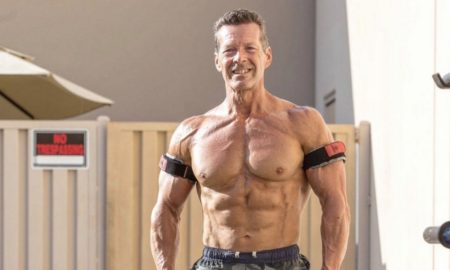 A number of previous studies have suggested that meditation training improves practitioners’ emotional regulation. While neuroimaging studies have found that meditation training appeared to decrease activation of the amygdala—a structure at the base of the brain that is known to have a role in processing memory and emotion—those changes were only observed while the subjects were meditating. Gaelle Desbordes, from Massachusetts General Hospital in Boston, and colleagues investigated whether meditation training could also produce a generalized reduction in amygdala response to emotional stimuli, even when the practitioner was not meditating.
A number of previous studies have suggested that meditation training improves practitioners’ emotional regulation. While neuroimaging studies have found that meditation training appeared to decrease activation of the amygdala—a structure at the base of the brain that is known to have a role in processing memory and emotion—those changes were only observed while the subjects were meditating. Gaelle Desbordes, from Massachusetts General Hospital in Boston, and colleagues investigated whether meditation training could also produce a generalized reduction in amygdala response to emotional stimuli, even when the practitioner was not meditating.
Participants were enrolled in a larger investigation into the effects of two forms of meditation: mindful meditation and compassionate meditation, based at Emory University in Atlanta. Healthy adults with no experience meditating participated in eight-week courses in one of the meditative approaches; a control group participated in an eight-week health education course.
Within three weeks before beginning and three weeks after completing the training, 12 participants from each group were given brain scans, performed as the subjects viewed a series of 216 different images—108 per session—of people in situations with either positive, negative or neutral emotional content. Meditation was not mentioned in pre-imaging instructions to participants, and the investigators confirmed afterward that the volunteers had not meditated while in the scanner. Participants also completed assessments of symptoms of depression and anxiety before and after the training programs.
In the mindful meditation group, the after-training brain scans showed a decrease in activation in the right amygdala in response to all images, supporting the hypothesis that meditation can improve emotional stability and response to stress. In the compassion meditation group right amygdala activity also decreased in response to positive or neutral images; however, among those who reported practicing compassion meditation most frequently outside of the training sessions, right amygdala activity tended to increase in response to negative images—all of which depicted some form of human suffering. No significant changes were seen in the control group or in the left amygdala of any study participants.
The researchers observe, “These results are consistent with the overarching hypothesis that meditation may result in enduring, beneficial changes in brain function, especially in the area of emotional processing.”
Desbordes, G. et al. (2012). Effects of mindful-attention and compassion meditation training on amygdala response to emotional stimuli in an ordinary, non-meditative state. Frontiers in Human Neuroscience. 6 DOI: 10.3389/fnhum.2012.00292.
—Dr. Bob Goldman
www.WorldHealth.net
Editor’s note: For the latest information and research on health and aging, subscribe to the American Academy of Anti-Aging Medicine e-zine free at WorldHealth.net.
Dr. Robert M. Goldman MD, PhD, DO, FAASP has spearheaded the development of numerous international medical organizations and corporations. Dr. Goldman has served as a Senior Fellow at the Lincoln Filene Center, Tufts University; as an Affiliate at the Philosophy of Education Research Center, Graduate School of Education, Harvard University, He is Clinical Consultant, Department of Obstetrics and Gynecology, Korea Medical University; and Professor, Department of Internal Medicine at the University of Central America Health Sciences, Department of Internal Medicine. Dr. Goldman holds the positions of Visiting Professor, Udayana University School of Medicine, Indonesia; Visiting Professor, Huazhong University of Science & Technology Tong Ji Medical School, China; Visiting Professor, The Wuhan Institute of Science & Technology, China; Visiting Professor at Hainan Medical College, China; and Visiting Professor, School of Anti-Aging, Aesthetics and Regenerative Medicine, UCSI University, Malaysia. Dr. Goldman is a Fellow of the American Academy of Sports Physicians and a Board Diplomat in Sports Medicine and Board Certified in Anti-Aging Medicine. Dr. Goldman is a Fellow of the American Academy of Sports Physicians and a Board Diplomat in Sports Medicine and Board Certified in Anti-Aging Medicine. He has overseen cooperative research agreement development programs in conjunction with such prominent institutions as the American National Red Cross, the US National Aeronautics and Space Administration (NASA), the Department of Defense, and the FDA’s Center for Devices & Radiological Health.
Dr Goldman was awarded the 2012 LifeTime Achievement Award in Medicine &Science. Dr. Goldman is the recipient of the ‘Gold Medal for Science, the Grand Prize for Medicine, the Humanitarian Award, and the Business Development Award. He received honors from Minister of Sports and government Health officials of numerous nations. In 2001, Excellency Juan Antonio Samaranch awarded Dr. Goldman the International Olympic Committee Tribute Diploma for contributions to the development of sport & Olympism.
In addition, Dr. Goldman is a black belt in karate, Chinese weapons expert, and world champion athlete with over 20 world strength records, he has been listed in the Guinness Book of World Records. Some of his past performance records include 13,500 consecutive situps and 321 consecutive handstand pushups. Dr. Goldman was an All-College athlete in four sports, a three time winner of the John F. Kennedy (JFK) Physical Fitness Award, was voted Athlete of the Year, was the recipient of the Champions Award, and was inducted into the World Hall of Fame of Physical Fitness. Dr. Goldman was awarded the Healthy American Fitness Leader Award from the President’s Council on Physical Fitness & Sports and U.S. Chamber of Commerce. Dr. Goldman is Chairman of the International Medical Commission overseeing sports medicine committees in over 184 nations. He has served as a Special Advisor to the President’s Council on Physical Fitness & Sports. He is founder and international President Emeritis of the National Academy of Sports Medicine and the cofounder and Chairman of the American Academy of Anti-Aging Medicine (A4M). Dr. Goldman visits an average of 20 countries annually to promote brain research and sports medicine programs.



















You must be logged in to post a comment Login